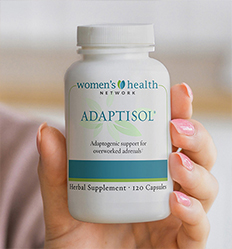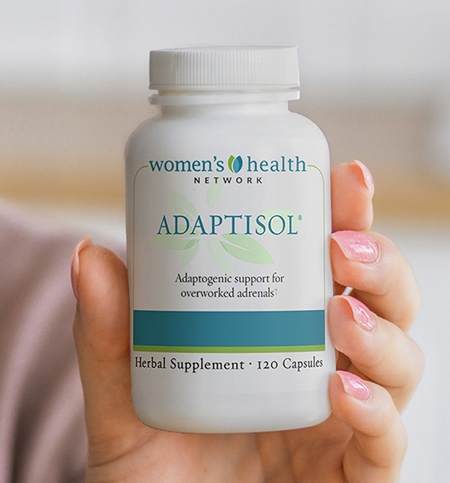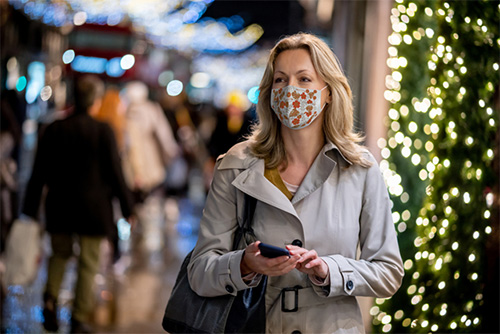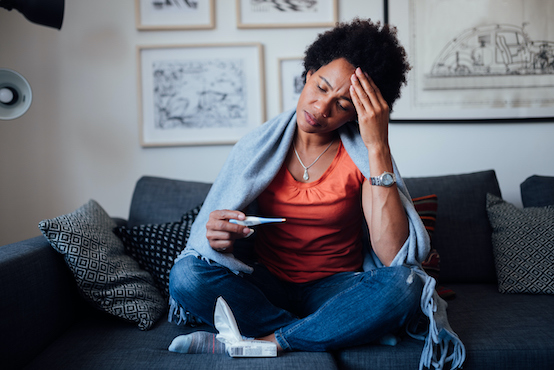Authored by Dr. Sharon Stills, NMD
If you’re back staying at home most of the time this winter, you might be noticing that some of your “lockdown habits” from the spring just aren’t cutting it to support your physical and emotional health. Need some fresh ideas for staying well? Here are new changes I’ve put into practice recently that are really helping me at this point in the Covid crisis. Maybe they can help you too.
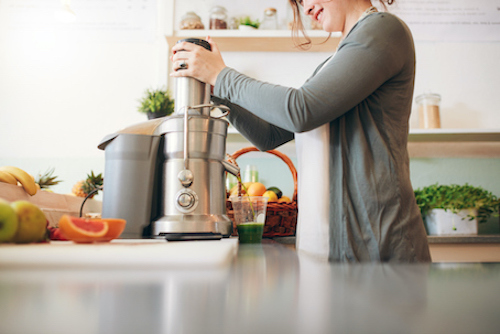
Replace stress eating with eating for stress support
The foods most of us reach for when we’re stressed — cookies, chips, chocolate, ice cream and other sugary or salt-filled processed carbs — might provide momentary comfort. But in the long run, stress eating just sets us up to feel even worse. Processed carbs send energy levels on a roller coaster, leaving you feeling tired, sluggish, and even less able to cope with stress.
So, instead of reaching for those comfort carbs, I encourage you to start eating more foods that protect your body from stress:
- Frozen or fresh wild caught salmon provides protein to stabilize blood sugars and curb excess production of cortisol, our body’s main “fight or flight hormone.” Salmon also contains beneficial amounts of Omega 3s to help boost mood and emotional well-being.
- Dark leafy greens provide magnesium, a key mineral to support the adrenal glands in keeping stress hormones balanced. Magnesium also boosts cellular energy and immune function. Try organic kale, spinach and mustard greens.
- Vitamins C, E and B5 each play a starring role in supporting your body’s healthy stress response. For vitamin C, try oranges and apples, carrots, and red and orange peppers. Foods rich in vitamin E include avocados, almonds and asparagus. For vitamin B5, stock up on eggs, lentils and split peas.
You can watch a video I made with even more ideas for foods that fight stress. Filling my diet with these foods is giving me a big boost of energy just when I really need it. And there’s still room for comforting treats — like that piece of organic chocolate I just had with breakfast! (Because it’s all about balance, right?) I also recommend taking a stress supplement for added support.
Sleep in an extra hour
A lot of us have tried to cling to our daily routines as much as possible to retain some sense of normalcy. But if you’re working from home and you temporarily don’t have a morning commute, do you really need to get up that early? Restful sleep restores our energy levels and gives our body a chance go into deep repair mode. Giving your body an extra hour of sleep isn’t a sign of laziness. It’s an opportunity to help you wake up feeling rejuvenated.
Or maybe you’ve already shut off your alarm clock and are getting up later, but only because you are staying up to binge watch Netflix into the wee hours or your racing mind is keeping you up. First, there is no reason to stay up watching Netflix. The show will still be there the next day. Staying up late on screens is really disruptive to your circadian rhythms, so put away all your devices (and turn off the TV) a few hours before bedtime to help your brain detox and re-regulate. You can read, write letters, journal or take a bath to help you unwind. A melatonin supplement can help to restore natural sleep rhythms. Melatonin also decreases inflammation and may even offer protection against lung injuries and viral infections.

If you are experiencing stress-induced insomnia or disrupted sleep, you need some targeted help to calm your stress hormones and your racing mind. Here are some natural solutions for resetting healthier sleep patterns when you’re stressed. For more tips, watch my video on how to stop stress from wrecking your sleep.
Find social connection
What has really helped me cope with social distancing is all the social connection I am finding online, especially on Zoom. This is something I discovered in the spring and it’s still working! I am taking personal growth classes, mediation classes and yoga classes. These classes are so fun and informative that I would want to take them lock down order or not. I have been so inspired that I have started my own online women’s circle for natural health and healing. Like my Facebook page to get a notification for our next meeting. It’s completely free to attend!
Something else I have started doing in the New Year is having a morning phone call with a friend. We meditate and do visualizations and affirmations together. It gives me such wonderful feelings of abundance and grounding as I start my day. It really helps me get through those hard moments.
Maybe you can choose a friend to buddy up with for daily check ins? It can be inspirational, but don’t forget the power of a good “kvetch” with a friend to vent and rant about how frustrating and scary these times are. That helps too!

New ways to relax
We’ve all watched those heartwarming videos of people singing together from their balconies this past spring. But even if you don’t have a balcony — or it’s covered in snow — I encourage you to put on your favorite music and sing your heart out as a potent tool for relieving stress.
The way you breathe when you sing — from deeper down in the belly instead of shallow breaths — helps to stimulates the body’s Vagus nerve. Running from the neck to the abdomen, the Vagus nerve integrates our organ function, nervous systems and endocrine systems. When the Vagus nerve is activated, it acts as a brake on the “fight or flight” stress reflex, and you feel more relaxed and calm.
Chanting or humming can also activate the vagus nerve. The next time you meditate — and I hope you are meditating! — try chanting the ancient sound “Om” and see if it helps you deepen your feelings of relaxation.
Look for the silver linings
I am very mindful that each of us is facing different stressors during this difficult time. You may be worried about your older parents and other loved ones at higher risk for Covid-19. You’re probably frazzled from the kids’ school going back online. Living by ourselves can feel incredibly isolating. And so many are experiencing job losses and all the economic worries that come with that.
One step I have taken to better cope with my own stressors is to make a concerted effort to look for silver linings. For example, I always wanted to do more volunteer work, but never had the time. I have now made the time, and have volunteered to shop for residents at the retirement community where my mom lives. It’s so sad that I am unable to visit my mom in person due to the lock down, but it make me feel so good to know that I am helping my mom and all her friends in the community cope better by picking up their medications and buying their groceries.
As that quote from Mr. Rogers goes, “look for the helpers” in a time of crisis. I will change that up to “be the helper” in the crisis if you can. It feels amazing!
I am also encouraging my patients to look for silver linings. One of my patients texted me a photo of a giant glass of water and told me, “Now that I work from home and can go to the bathroom whenever I want to, I can finally drink all the water you’ve always recommended!”
Friends of mine who are struggling with cancer call this “finding the flowers in every day.” In times like these, when it seems the sky really has fallen, it’s easy to give in to our worst fears. But if you look for those silver linings, it helps restore your perspective. The truth is we are all in this together, and it won’t last forever. Even in these difficult times, there can be those little moments that make us smile.
So start cataloging your own silver linings — you can even share your on our Women’s Health Network Facebook page!
And in each of these silver linings you will find mental fuel to power you through the weeks ahead.
Please be well. Better days are ahead.







